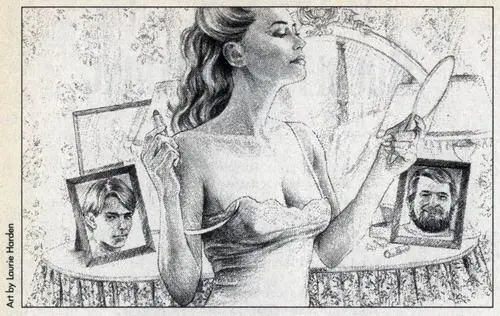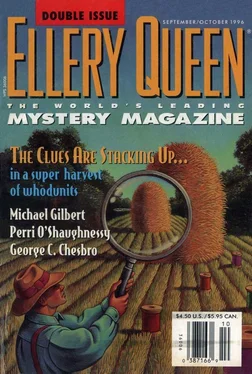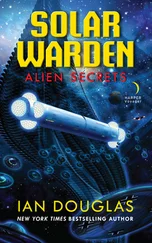Doug Allyn - v108 n03-04_1996-09-10
Здесь есть возможность читать онлайн «Doug Allyn - v108 n03-04_1996-09-10» весь текст электронной книги совершенно бесплатно (целиком полную версию без сокращений). В некоторых случаях можно слушать аудио, скачать через торрент в формате fb2 и присутствует краткое содержание. Город: Dell Magazines, Год выпуска: 1996, Издательство: Dell Magazines, Жанр: Детектив, на английском языке. Описание произведения, (предисловие) а так же отзывы посетителей доступны на портале библиотеки ЛибКат.
- Название:v108 n03-04_1996-09-10
- Автор:
- Издательство:Dell Magazines
- Жанр:
- Год:1996
- Город:Dell Magazines
- ISBN:нет данных
- Рейтинг книги:4 / 5. Голосов: 1
-
Избранное:Добавить в избранное
- Отзывы:
-
Ваша оценка:
- 80
- 1
- 2
- 3
- 4
- 5
v108 n03-04_1996-09-10: краткое содержание, описание и аннотация
Предлагаем к чтению аннотацию, описание, краткое содержание или предисловие (зависит от того, что написал сам автор книги «v108 n03-04_1996-09-10»). Если вы не нашли необходимую информацию о книге — напишите в комментариях, мы постараемся отыскать её.
v108 n03-04_1996-09-10 — читать онлайн бесплатно полную книгу (весь текст) целиком
Ниже представлен текст книги, разбитый по страницам. Система сохранения места последней прочитанной страницы, позволяет с удобством читать онлайн бесплатно книгу «v108 n03-04_1996-09-10», без необходимости каждый раз заново искать на чём Вы остановились. Поставьте закладку, и сможете в любой момент перейти на страницу, на которой закончили чтение.
Интервал:
Закладка:
The compost heap down by the garage was new. They had started it last fall with the hedge clippings. This March they’d added the mulch of leaves they’d raked from the flowerbeds and the garden rubbish, carrying it down in bushelbaskets, Maudie’s mittened hand in one wire handle and Sal’s long red fingers in the other. On the ground beside the compost heap lay a weathered old six-paneled door of the kind once called “cross-and-open-Bible.” Maudie set the body down alongside it. She lifted the door to uncover the six-by-three-foot hole she and her sister had dug there last October before the ground froze. Maudie manhandled the body over to the edge, eased the legs in at one end, and as best she could, she lowered the rest of the body so that her sister’s corpse lay on its back. Taking off her jacket, she knelt down on the lip of the grave and spread it across the body like a coverlet, tucking the collar up under Sal’s gray chin.
Maudie remained there on her knees for a moment. Sal had always insisted no prayer be said over her body. Still, a prayer did seem in order, so Maudie offered up one for her own soul. Then she took off her bloody gardening gloves, tossed them into the grave, and got to her feet. She went into the garage and, one at a time she lugged out the black plastic bags half filled with dirt. When she’d emptied their contents back into the hole she got the pitchfork and moved the compost heap to cover the fresh dirt. Then she carried the old door back inside the garage where they’d found it.
Maudie walked up to the house and called the police. “Dear,” she told the woman who took her call, “this is Miss Maude McCurdy at Fifteen Pine Street.” Then she repeated the speech she and her sister had worked out together for the survivor to use. “I’m very worried. It’s about my sister. You see, she went out for her walk two hours ago and she isn’t back yet. She gets forgetful sometimes, and I’m afraid she might have wandered off into the woods.”
Maudie hung up the phone and went over to the kitchen table. In the drawer there were two photographs, one of herself, the other of her sister. She took out Sal’s picture, set it down on the table, and closed the drawer. They knew the police would want a recent photograph. She remembered the time they’d spent last October going through the photo box and smiling at each other and their shared secret as they made their choices. Who would she have to smile at and share a secret with now?
The roof of Maudie’s mouth ached. But she fought back the tears. There were still things to do. She had to go upstairs and wash and change her clothes. There would be plenty of time for crying after the police had come and gone.
Double or Nothing
by Katherine H. Brooks
© 1996 by Katherine H. Brooks
Two bodies lay, with fractured bones
And noggins split asunder—
Two broken backs across the tracks.
The cops could only wonder,
Since not a single clue was there
To Who or what or why,
Or how they met their Waterloo.
Who pushed them off to die?
The victims of this crime were twins,
Alike in dress and feature,
With one a sweet and gentle man—
A boon to fellow creature;
The other brother brash and mean,
As changeable as weather,
But though they never got along,
They seemed to stick together.
One day, while strolling on a bridge
That spanned a busy station,
The conversation turned to shouts
Of wild vituperation
Delivered by the evil twin,
And when his rage was spent,
He fixed his brother with a grin
Of murderous intent;
And as the victim stopped to watch
A train, and turned his back,
He hoisted him above the edge,
And hurled him towards the track.
While doing so, he felt a surge
Of unexpected terror,
And clutched the wall, to break his fall,
Too late to mend his error.
Moral:
The wretched fellow made, you see,
Atonement for his sins,
By foolishly forgetting he
Was one of Siamese twins.
Femme Fatale
by Peter Turnbull
© 1996 by Peter Turnbull
Peter Turnbull’s police P Division is back in a procedural packed with a fascinating array of Glaswegian characters. In reviewing the author s last-published novel, The Killing Floor (St. Martin’s Press), Publishers Weekly praised Mr. Turnbull’s incisive characterization of even minor figures. He brings the same concern for realistic rendering of all his characters to his short fiction.

TUESDAY — 23:30
John Black saw the dark heap by the roadside half on the pavement, half in the gutter. It unnerved him. Even at a distance of about three hundred yards, he guessed, it unnerved him. He knew intuitively that his walk home on this pleasant summer’s night, here in well-set Bearsden, was going to be cut short by unpleasantness. Here among the ancient tribe of Volvo and Mercedes and Jaguar, here, basking in the soft yellow glow of the sodium lamps, here was tragedy. He quickened his pace. A car passed him, moving in his direction; the headlights picked up the mound in the gutter; the car slowed and then sped away. Human nature often dismayed John Black. He kept his eyes on the mound, which as he approached revealed itself to be of human form, then a male, an adult, lying in a crumpled heap against the kerb stones. He knelt by the man, a youngish man, he noted, well dressed, his head lolling to one side: no evident injury, not drunk, no smell of alcohol at least. John Black felt for a pulse; it eluded him. He placed his hand inside the man’s light summer raincoat and felt something warm and wet and sticky. He stood, looked for a phone box. Seeing one, he ran to it and dialled three nines, smearing the man’s blood liberally about the handset as he did so.
Later, in the comfortable, reassuring lapping of the blue lights of Papa Tango Foxtrot, he answered PC Hamilton’s questions as carefully as he could, occasionally, and anxiously, glancing at the paramedics as they gently lifted the body onto a stretcher and eased it into the back of an ambulance. Occasionally a passing car would slow as it passed, a pedestrian would pause before moving reverently on his way, because this was Bearsden. In the East End schemes, or neighbouring “needle city” Drumchapel, the crowds would gather at such a spectacle, ogling as people once ogled at public executions.
“You didn’t see anything suspicious?” Hamilton asked.
“No. Nothing. Just a mound in the road. I saw it as I turned into this road from Roman Road. I saw him as soon as I turned the corner. I got close, saw what it was, checked for a pulse, but I didn’t move him in case he was a hit-and-run victim. I’m a paramedic.”
“Useful.”
“Aye. I work at Lightburn Hospital, elderly terminally ill, but I know how to check for a pulse. I couldn’t feel one, but his body was warm.”
“It was warm,” Hamilton noted in his pad.
“Then I felt the blood on his chest and then I dialled three nines.”
An ambulance crewman closed one of the rear doors and climbed in the back of the vehicle. The other crewman closed the second door and then ran to the cab. He turned the vehicle in a 180-degree turn and drove towards Glasgow, with klaxon, blue lights, police escort.
“They must think they’ve got a chance.” Black watched the ambulance turn. “They probably found a pulse. Not the sort of thing you’d expect to happen in Bearsden.”
“What isn’t?”
“This isn’t.” Black pointed to the place where the man had lain.
Читать дальшеИнтервал:
Закладка:
Похожие книги на «v108 n03-04_1996-09-10»
Представляем Вашему вниманию похожие книги на «v108 n03-04_1996-09-10» списком для выбора. Мы отобрали схожую по названию и смыслу литературу в надежде предоставить читателям больше вариантов отыскать новые, интересные, ещё непрочитанные произведения.
Обсуждение, отзывы о книге «v108 n03-04_1996-09-10» и просто собственные мнения читателей. Оставьте ваши комментарии, напишите, что Вы думаете о произведении, его смысле или главных героях. Укажите что конкретно понравилось, а что нет, и почему Вы так считаете.












